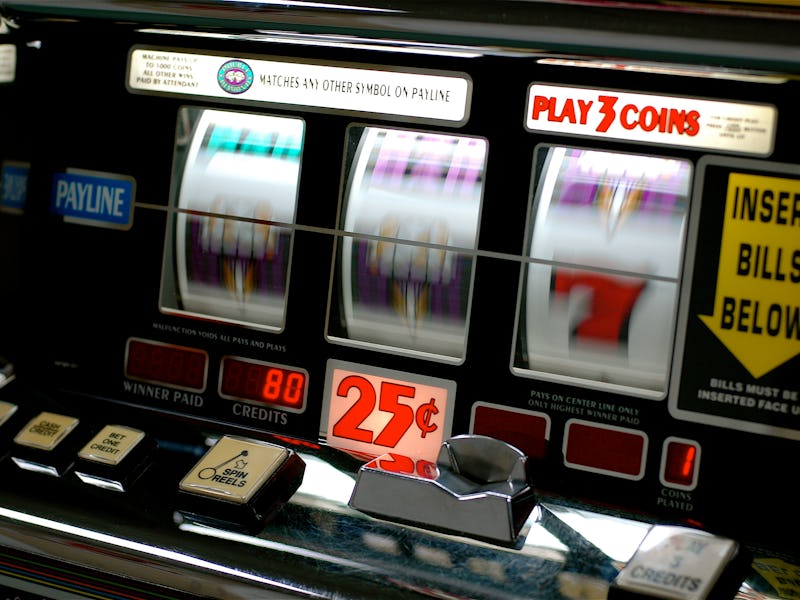Human-like Slot Machines Cost Gamblers More Money
It's good news for casinos.

Italian researchers have found that when people ascribe human characteristics to slot machines, they gamble more.
The study, recently published by the Journal of Experimental Psychology: Applied, describes a series of experiments where participants were primed to believe either that the slot machine they were playing had a human-like brain, or that it was controlled by a computer algorithm.
Here’s the crazy thing: The actual slot-machine interface was exactly the same for both groups, a basic computer program with only two functions — roll again or quit the game. The only difference was what participants were told about it before they began to play.
One group was told, “The slot machine can decide whether you will win or lose a series of bets any time she wants. Sometimes, she may choose to make fun of you, leaving you empty-handed for several bets; other times, she might want to reward you with a win.”
The other group was told, “The slot machine is controlled by a mathematical algorithm that is programmed to deliver a certain overall number of wins and losses. Based on this algorithm, you can win or lose a series of bets.”
Across the experiments, those who were cued to see the machine as human played for longer on average. And, because the house always wins, the researchers were able to link longer playing times with more severe loses.
The researchers express concern for the detrimental consequences of slot machine gambling for individuals and society, which is ironic given that their research could help pave the way for more addictive games.
“Our research indicates that the psychological process of gambling-machine anthropomorphism can be advantageous for the gaming industry; however, this may come at great expense for gamblers’ (and their families’) economic resources and psychological well-being,” the authors write.
If I could speculate wildly about why the researchers got the results they did, maybe it’s that seeing the slot machine as a computer algorithm sucks the fun out of gambling, and reminds players that the odds are stacked against them. Maybe one needs to believe in Lady Luck to believe one can get lucky.
There’s a sadder interpretation, too: Humans are programmed to seek companionship from other humans. When we seek to replace those interactions with computers that imitate humans, we’re bound to come away feeling unfulfilled and wanting more.